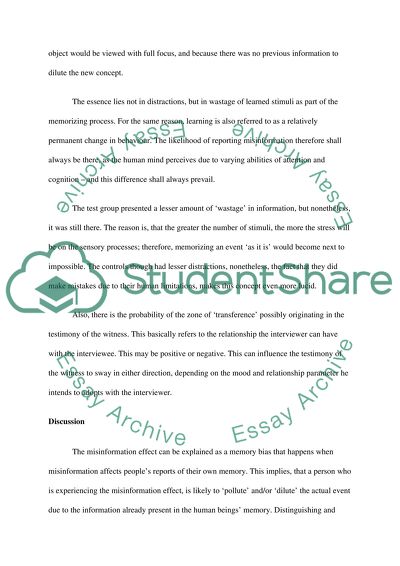Eyewitness Memory and the Misinformation Effect Essay. Retrieved from https://studentshare.org/miscellaneous/1521697-eyewitness-memory-and-the-misinformation-effect
Eyewitness Memory and the Misinformation Effect Essay. https://studentshare.org/miscellaneous/1521697-eyewitness-memory-and-the-misinformation-effect.


